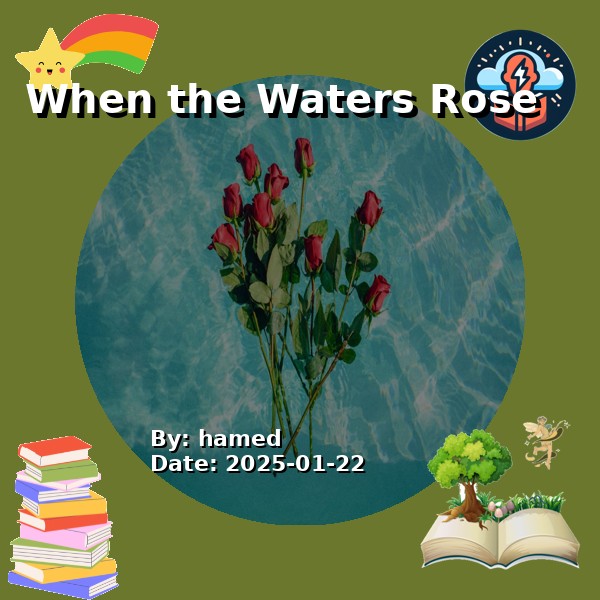The rain had been relentless for days, a constant drumming on the tin roofs of the villages nestled in Central Java’s lush valleys. By the time the rivers began to swell, it was too late to escape. The water came in the dead of night, a roaring force that swept through homes, fields, and lives with no mercy.
In the village of Sumber Rejo, 12-year-old Rani clung to her mother’s hand as they waded through the chest-deep water. The flashlight in her mother’s grip flickered, casting shaky beams on the chaos around them. Furniture floated past, along with remnants of lives uprooted—a child’s stuffed bear, a photograph album, a single sandal. The air was thick with the smell of mud and fear.
“Stay close, Rani!” her mother shouted over the sound of the rushing water. But Rani’s eyes were fixed on the dark shape of their neighbor’s house, half-submerged and tilting precariously. She thought of Bu Sari, the elderly woman who lived there, who always gave her candied fruit during Ramadan. “Bu Sari!” Rani cried, pulling away from her mother’s grip. “We have to help her!”
Her mother hesitated, torn between the instinct to protect her daughter and the pull of compassion. “Rani, it’s too dangerous—”
But Rani was already moving, her small body cutting through the water with surprising determination. She reached the house and pounded on the door. “Bu Sari! It’s me, Rani! Are you there?”
A faint voice called back, trembling with fear. “I’m here! I can’t—I can’t get out!”
Rani’s mother caught up, her face pale but resolute. Together, they pushed against the door, the water making it heavy and unyielding. Finally, it gave way, and they found Bu Sari huddled on a table, the water lapping at her feet. Her eyes widened with relief when she saw them.
“Thank you,” she whispered as Rani and her mother helped her down. “I thought… I thought I was alone.”
The three of them made their way to higher ground, where other villagers had gathered. Makeshift shelters had been erected, and the air was filled with the sounds of crying children, murmured prayers, and the occasional bark of orders from volunteers distributing food and blankets.
As dawn broke, the full extent of the damage became clear. Homes were reduced to rubble, fields were submerged, and the roads were impassable. But amid the devastation, there were glimmers of hope. Neighbors shared what little they had, strangers worked side by side to clear debris, and children like Rani reminded everyone of the resilience of the human spirit.
Days turned into weeks, and the waters slowly receded, leaving behind a landscape forever changed. Rani stood at the edge of what used to be her family’s rice field, now a sea of mud. Her mother joined her, placing a hand on her shoulder.
“We’ll rebuild,” her mother said softly. “It won’t be easy, but we’ll do it together.”
Rani nodded, her eyes scanning the horizon. She thought of Bu Sari, safe now in a relative’s home, and of the countless others who had lost everything. The road ahead was long, but she knew they would walk it together, one step at a time. Because when the waters rose, they had learned that survival wasn’t just about staying afloat—it was about holding on to each other.
